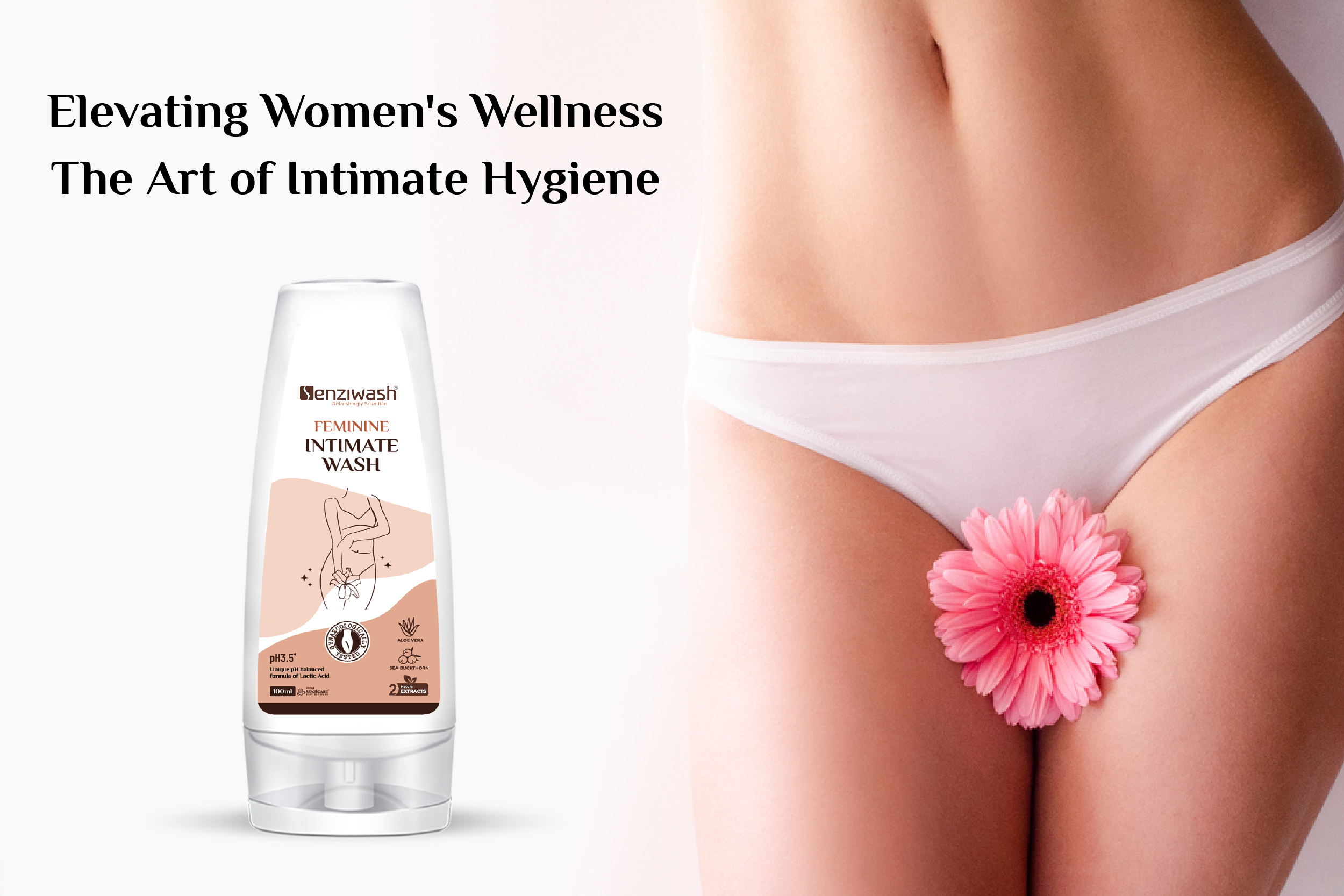In the rich tapestry of women’s wellness, intimate hygiene is a vital thread, intertwining with history, beauty standards, myths, and contemporary practices. At Senzicare, we honor the art of intimate hygiene, debunk common myths, tackle the challenges women frequently encounter, and delve into the empowering journey of self-care and transformation. Across history, diverse cultures have embraced unique beauty and hygiene standards. While some prioritized elaborate skincare rituals, others valued natural simplicity. Today, intimate hygiene has become a key aspect of personal wellness, mirroring the ever-evolving beauty ideals of modern times.
Myths and misunderstandings often cloud the path to proper intimate hygiene. From excessive cleansing to the misconception that all vaginal odor is problematic, it’s time to clarify the facts. Knowledge is essential for debunking these myths and adopting a healthier, more informed approach.
Intimate hygiene is a vital part of women’s wellness, rooted in history and beauty standards, yet often clouded by misconceptions. At Senzicare, our mission is to dismantle these barriers, encourage open conversations, and offer products that empower women to embrace intimate care. Your path to holistic well-being starts with knowledge, care, and self-acceptance. It’s time to elevate your wellness, one gentle step at a time.
Intimate hygiene refers to the practices that ensure the cleanliness and health of the female genital area. Good hygiene habits not only help in preventing infections but also promote comfort and confidence. Here are some tips and insights for maintaining optimal intimate hygiene:
1. Choose the Right Products
- Mild Cleansers: Use products specifically designed for the vaginal area that maintain a balanced pH (typically between 3.5 and 4.5).
- Avoid Scented Products: Scented soaps, douches, and sprays can disrupt the natural flora and cause irritation or infections like bacterial vaginosis or yeast infections.
2. Maintain Proper Hygiene Practices
- Daily Cleaning: Clean the external genital area daily with lukewarm water and a mild, pH-balanced wash. Avoid scrubbing harshly.
- Wipe Front to Back: Always wipe from front to back after using the toilet to prevent bacteria from the anus from entering the vaginal area.
- Change Feminine Products Regularly: Whether using tampons, pads, or panty liners, change them frequently to avoid bacterial buildup.
3. Wear Breathable Fabrics
- Cotton Underwear: Opt for cotton underwear, as it allows air circulation and helps keep the area dry.
- Avoid Tight Clothing: Wearing tight-fitting clothing can trap moisture, leading to infections like yeast infections.
4. Menstrual Hygiene
- Regular Changing of Menstrual Products: Change tampons or sanitary pads every 4-6 hours to reduce the risk of infection.
- Menstrual Cups: If you use menstrual cups, ensure they are sterilized before and after use.
5. Stay Hydrated and Maintain a Healthy Diet
- Hydration: Drink plenty of water to help flush out toxins and maintain the balance of vaginal flora.
- Balanced Diet: A diet rich in probiotics, such as yogurt, can promote good bacteria and reduce the risk of infections.
6. Sexual Health and Hygiene
- Urinate After Intercourse: This helps prevent urinary tract infections (UTIs) by flushing out bacteria that may have entered the urethra.
- Use Condoms: Protect yourself from sexually transmitted infections (STIs) by using condoms during intercourse.
7. Consult a Healthcare Provider
- Regular Check-ups: Visit your gynecologist regularly for health check-ups and to discuss any issues related to vaginal health or hygiene.
- Know When to Seek Help: If you notice unusual symptoms like itching, burning, or an abnormal discharge, it’s important to consult a healthcare provider promptly.
Benefits of Proper Intimate Hygiene:
- Prevents Infections: Practicing good hygiene can prevent bacterial infections, yeast infections, and UTIs.
- Boosts Confidence: Feeling fresh and clean can enhance your overall well-being and confidence.
- Promotes Reproductive Health: Good hygiene practices are essential for maintaining healthy reproductive organs.
Intimate hygiene is an essential aspect of women’s overall wellness, and when done correctly, it contributes to long-term health and comfort.


